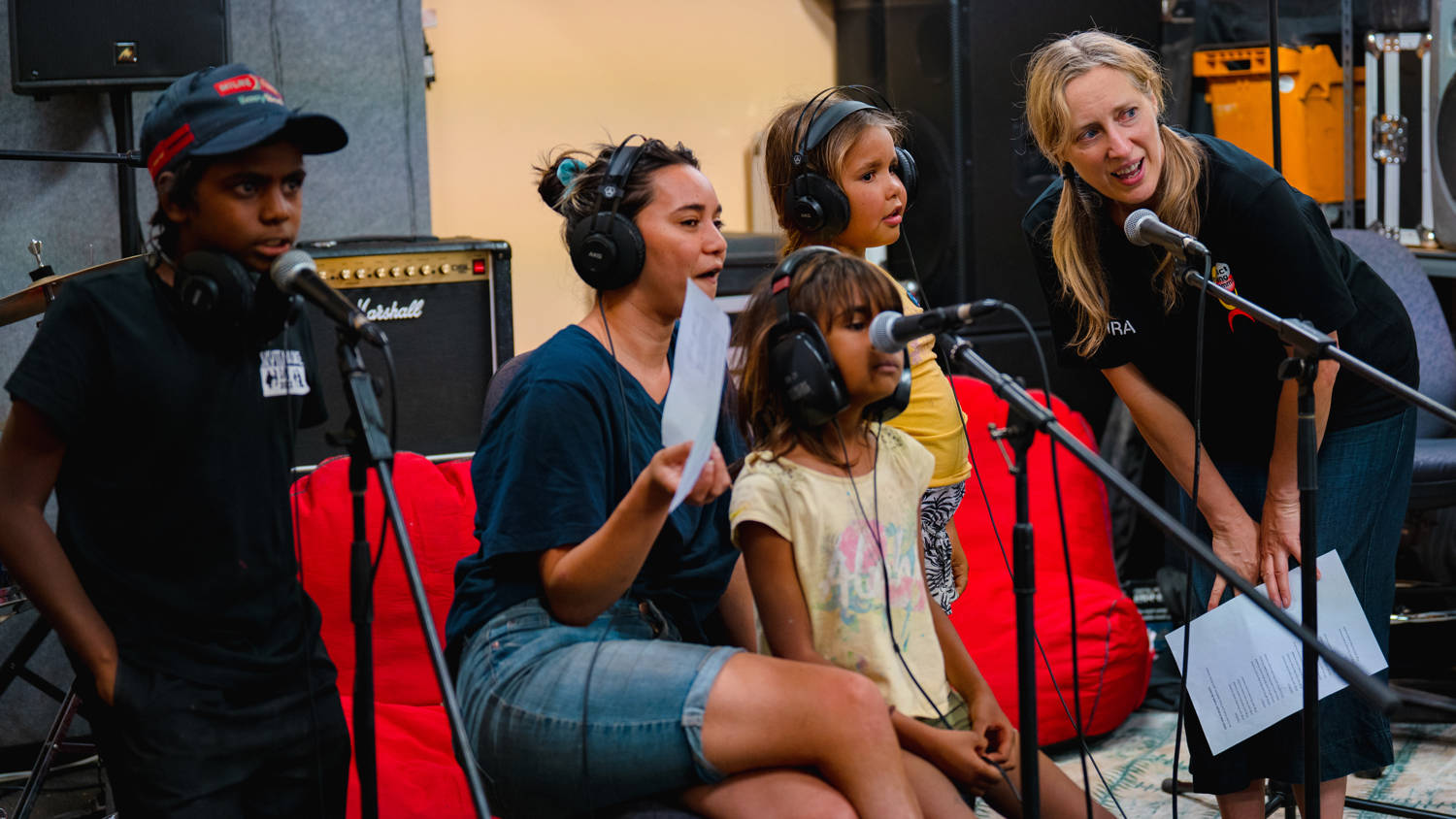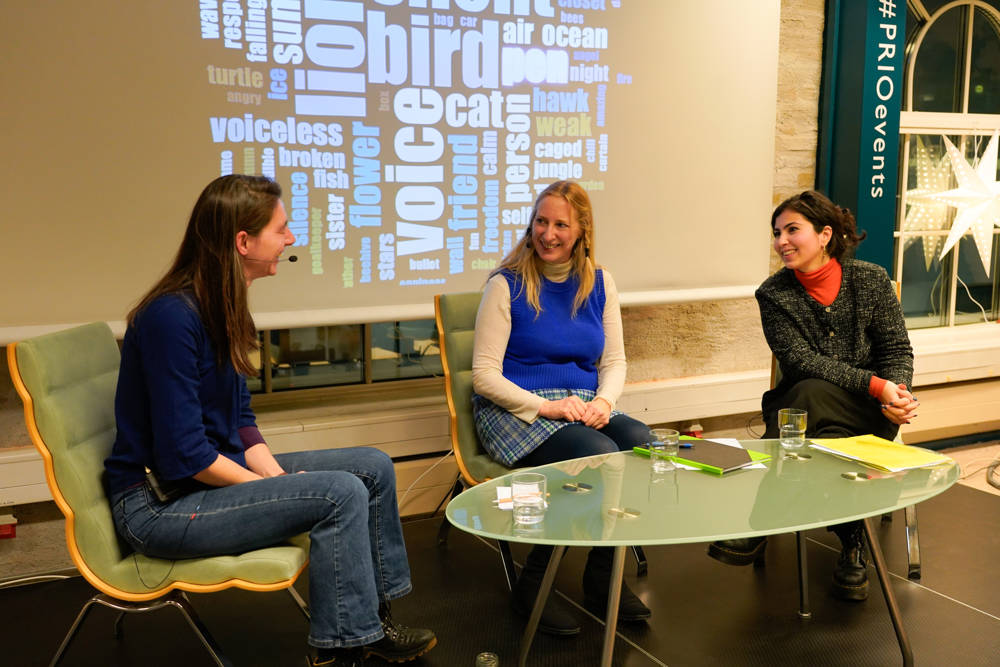
What are the ways that creative arts can bring voices into dialogue in the aftermath of conflict and how can this support peace, justice, self-determination and intergenerational healing? What happens to voices in arts-based dialogues in contexts of power asymmetry? Who decides which voices are heard and which stories are told? How do we ensure voices raised and stories told are also witnessed and heard, and can catalyse action?
PRIO has the pleasure of hosting Dr Gillian Howell from the University of Melbourne, Australia. Dr Howell is a musician and researcher whose work investigates the social contributions of music-making in contexts affected by war, displacement, and colonial violence. She will engage in conversation with Chiara Ayad, Member of Masahat, to explore the questions listed above.
Gillian’s interest in this area stems from formative experiences as a young musician when she worked as a staff musician in the Pavarotti Music Centre in Mostar, post-war Bosnia-Herzegovina, which at the time was a radical embrace of the arts as a response to conflict. She went on to work as a researcher with the Sri Lanka Norway Music Cooperation, with Save the Children in the Middle East, with Musicians Without Borders, and as a collaborative songwriter working with speakers of endangered Aboriginal languages in far north-west Australia. Across her research and creative practice, voice is a through-line, connecting the impulse to create and express oneself aesthetically, to the realisation of creative works, to the social outcomes that these can catalyse in support of rights, justice, and peace.
 From left: Cindy Horst, Gillian Howell, and Chiara Ayad. Photo: PRIO / Vera Lind
From left: Cindy Horst, Gillian Howell, and Chiara Ayad. Photo: PRIO / Vera Lind
Speakers
- Gillian Howell, Senior Researcher, Melbourne University
- Chiara Ayad, Board member of Masahat
The conversation will be moderated by Cindy Horst, Research Professor at PRIO. This seminar is part of the INSPIRE Seminar series, and is co-hosted by the PRIO Centre on Culture and Violent Conflict and PRIO Middle East Centre.
Please be informed that the introduction of the seminar and 2 minutes of Dr Gillian Howell's presentation was not recorded due to technical difficulties. Gillian began her presentation with an Acknowledgment of Country. This cultural protocol acknowledged that her work takes place on lands traditionally owned by the Wurundjeri people in what is today known as Melbourne, and on Bunuba country in far north-west Australia. She paid her respects to the Elders of these communities and acknowledged their ongoing care for and custodianship of the lands and waterways. She extended this respect to the traditional owners of the lands on which PRIO is located. In Australia, an Acknowledgment of Country is given at the start of a formal meeting or presentation, to show awareness of the traditional ownership of lands, and respect for the First Peoples of a particular location and their Elders.





